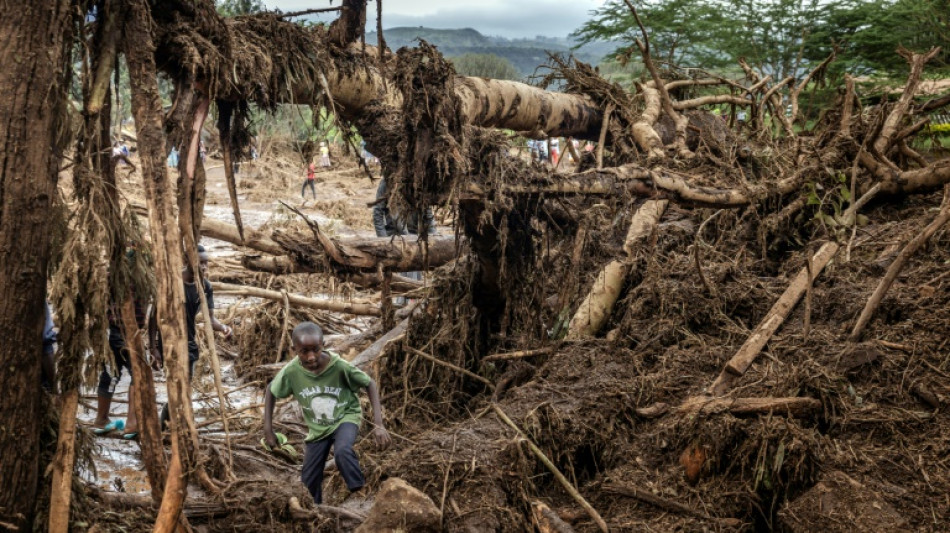

Kenya's Ruto orders evacuations after deadly floods
Kenyan President William Ruto on Tuesday deployed the military to evacuate everyone living in flood-prone areas after 171 people were killed due to heavier than usual rainfall since March.
Monsoon rains, amplified by the El Nino weather pattern, have devastated the East African country, engulfing villages and threatening to unleash even more damage in the weeks to come.
In the worst single incident that killed nearly 50 villagers, a makeshift dam burst in the Rift Valley before dawn Monday, sending torrents of water and mud gushing down a hill and swallowing everything in its path.
The tragedy in Kamuchiri village, Nakuru county, was the deadliest episode in the country since the start of the March-May rainy season.
Ruto, who visited the victims of the Kamuchiri deluge after chairing a cabinet meeting in Nairobi, said his government had drawn up a map of neighbourhoods at risk of flooding.
"The military has been mobilised, the national youth service has been mobilised, all security agencies have been mobilised to assist citizens in such areas to evacuate to avoid any dangers of loss of lives," he said.
People living in the affected areas will have 48 hours to move, he added.
"The forecast is that rain is going to continue and the likelihood of flooding and people losing lives is real and therefore we must take preemptive action," he said.
"It is not a time for guesswork, we are better off safe than sorry."
- "Relocated forcibly' -
The Kamuchiri disaster -- which left at least 48 people dead -- cut off a road, uprooted trees, and destroyed homes and vehicles.
Around 26 people were hospitalised, Ruto said, with fears that the death toll could rise as search and rescue operations continued.
The cabinet warned that two dams -- Masinga and Kiambere -- both less than 200 kilometres (125 miles) northeast of the capital had "reached historic highs", portending disaster for those downstream.
"While the government encourages voluntary evacuation, all those who remain within the areas affected by the directive will be relocated forcibly in the interest of their safety," a statement said.
Monday's tragedy came six years after a dam accident at Solai, also in Nakuru county, killed 48 people, sending millions of litres of muddy water raging through homes and destroying power lines.
The May 2018 disaster involving a private reservoir on a coffee estate also followed weeks of torrential rains that sparked deadly floods and mudslides.
- 'Caught unprepared' -
Opposition politicians and lobby groups have accused Ruto's government of being unprepared and slow to respond to the crisis despite weather warnings, demanding that it declare the floods a national disaster.
Kenya's main opposition leader Raila Odinga said Tuesday the authorities had failed to make "advance contingency plans" for the extreme weather.
"The government has been talking big on climate change, yet when the menace comes in full force, we have been caught unprepared," he said.
"We have therefore been reduced to planning, searching and rescuing at the same time."
The international community, including the United Nations and African Union commission chief Moussa Faki Mahamat, have sent condolences and vowed solidarity with the affected families.
The weather has also left a trail of destruction in neighbouring Tanzania, where at least 155 people have been killed in flooding and landslides.
Late last year, more than 300 people died in rains and floods in Kenya, Somalia and Ethiopia, just as the region was trying to recover from its worst drought in four decades.
(A.Monet--LPdF)




